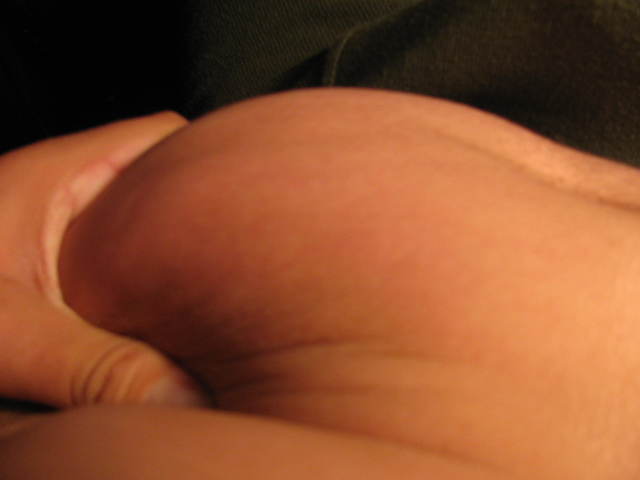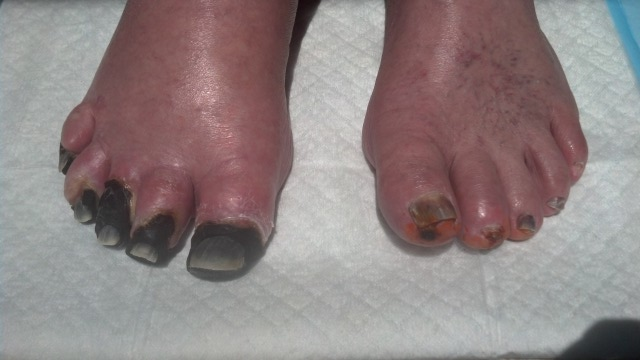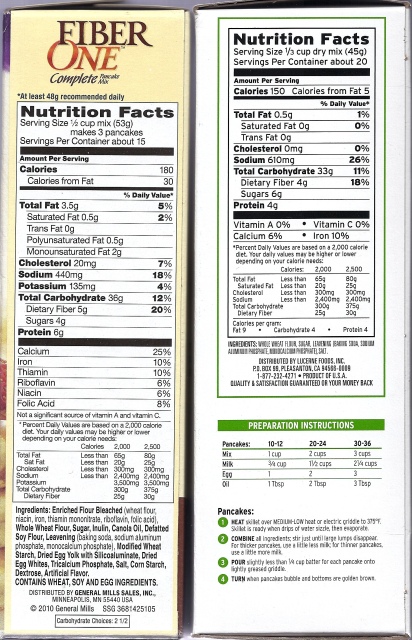Healthy weight or too less
Question
Hi, I am concerned about my friend. She is 21 years old.
Weighs 110lbs and is 5'8'. She is always telling me that she
need to lose weight and i tell her that she is Under weight
via BMI. She Barely ever eats anything and the main thing
she eats is noodles. She Also exercise daily to try to lose
weight. My question is that, Is this healthy at all.
Hi Kevin,
Her diet is not sufficient to sustain her body. I strongly suggest you talk to her and get her to seek some help.Your friend sounds like she might have an eating disorder. Anorexia or Bulemia are possibilities.
The main criteria necessary for the diagnosis of anorexia nervosa are:
旹xcessive weight loss or lack of normal weight gain, often to the point of starvation
旾ntense fear of gaining weight or becoming fat
旸istorted image of body weight or shape
旳bsence of at least three menstrual periods in a row in females
The following are common behaviors that occur in anorexia nervosa:
昐ignificant reduction of the amount of food eaten
旳voiding eating; skipping meals
旾ntense focusing on food, eating, and body weight and shape
昍epeatedly weighing oneself
旸enial of hunger
昍igid eating patterns, such as extreme controlling of calories and fat even when underweight
昒nusual rituals at mealtimes, such as cutting food into tiny pieces, moving food around the plate, and throwing out food so it does not have to be eaten
昐toring or hoarding food
旵ollecting recipes and cooking for others while finding excuses to avoid eating
昗earing baggy clothes to hide the amount of weight lost
昈bvious fear or anxiety before eating and guilt after eating
旵omplaining of bloating and unusual fullness after eating only small amounts of food
旹xcessive or compulsive exercising
In addition to extreme dieting, many people with anorexia nervosa use excessive exercising to burn off calories and keep their weight very low. If unable to exercise for some reason, they may experience extreme guilt or even panic. Thus, they may continue to exercise despite injury and exhaustion.
Does this sound like your friend?
The first thing to do is to talk to your friend, privately, about what you've noticed. Tell your friend that you're worried. Be as gentle as possible, and try to really listen to and be supportive of your friend and what she is going through.
It's normal for people with eating disorder to feel guarded and private about their eating problems. Try not to get frustrated. Remind your friend that you care.
People with eating disorders often have trouble admitting that they have a problem. Trying to help someone who doesn't think she needs help can be hard. If your friend is willing to seek help, offer to go with her to see a counselor or a medical expert.
If her doctor suspects anorexia, her doctor will order several laboratory tests as well as do a psychological evaluation.
The SCOFF questionnaire, developed in Great Britain, is sometimes used when anorexia is suspected.
A "yes" response to at least two of the following questions is a strong indicator of an eating disorder:
? S: "Do you feel sick because you feel full?"
? C: "Do you lose control over how much you eat?"
? O:"Have you lost more than 13 pounds recently?"
? F: "Do you believe that you are fat when others say that you are thin?"
? F: "Does food and thoughts of food dominate your life?"
Good luck Kevin!
Maria
Related Articles
-
Face fat
QuestionHey! My problem lies with the fat on my face. The thing
-
Complex Carbohydrates
QuestionHello, I am a bit confused when it comes to the good and
-
Will eating this smoothie twice a day add weight?
QuestionI make a smoothie that contains the following and am conc
-
What am I doing wrong?
QuestionGood Evening! Ill start by saying, a few years ago I wa
-
Spacing out supplements over the day?
QuestionHi, Are you aware of any studies analyzing the effect of
-
Need to loose about 10 pounds
QuestionHi my daughter is 13 years old and is really getting in t
- DON'T MISS
- Soy Protein? Good for you?
- Meal spacing to lose weight on different diets
- Sport nutrition
- gaining weight once again
- macronutrient metabolism
- Metabolism and body composition over 70
- the truth about Earth Balance
- eating all day..
- Does filling up with water promote weight loss?
- I have flabby thighs and a...




